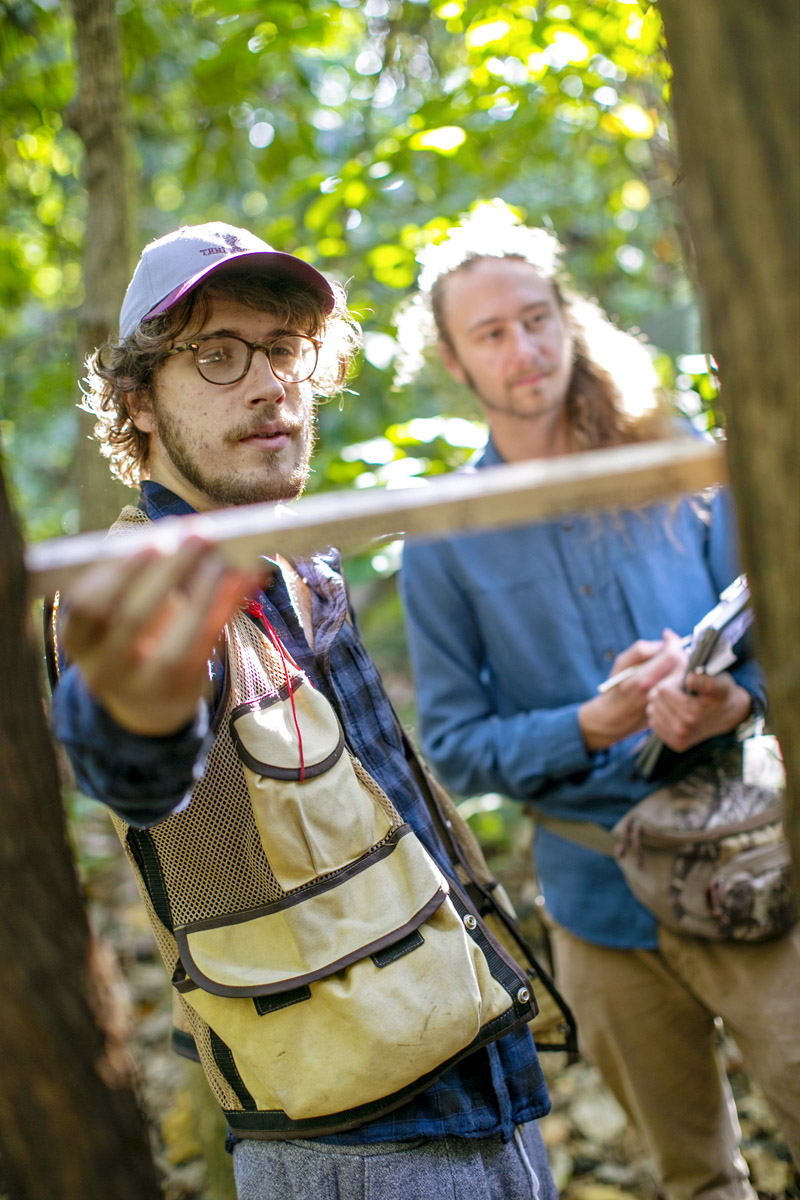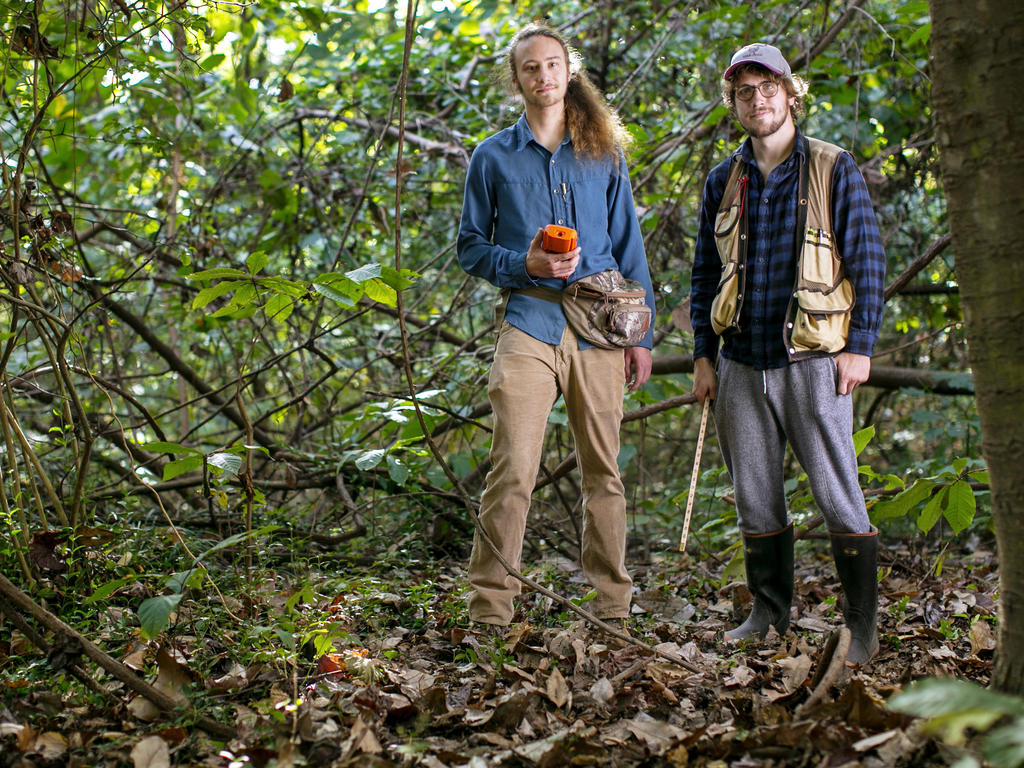Established in 2014, the Urban Forestry Fellowship is a collaborative research program between Rhodes College and the Overton Park Conservancy. First imagined by Dr. Kimberly Kasper, assistant professor of anthropology, and Eric Bridges, director of operations at the Conservancy, the fellowship is focused mainly on the study of the Old Forest State Natural Area in Overton Park. This large acreage of old-growth forest located in the center of metropolitan Memphis is a unique resource to Memphians and Rhodes students alike.
Seniors Ethan Williford and Mac Wilson served as the Urban Forestry fellows in the fall of 2016. Because of the campus’ proximity to the forest, the fellows had the unique ability to learn about a particular type of environment or tree and then walk over to study and examine it in person. Says Wilson, “It’s rare to have a residual tract of old forest in the middle of a dense urban area, with relatively little disturbance over the past 180 years, given its location. It’s amazing having a system to research, study in class, and recreate in literally across the street from campus. Also, Eric Bridges has been a great learning resource, and his background in forestry has been immensely useful in our work at the park.”
But the fellows didn’t just learn about the forest; they actively added to the general knowledge of the area with their project. Wilson explains, “Currently, we are wrapping up a project that involves inventorying tree diversity and abundance in the Old Forest at Overton Park, as well as the final draft of the new Rhodes arboretum guide. Our work in the park is a replication of a study done about 30 years ago to provide information for the park’s management plan at the time, and we hope to see how the structure of the forest has changed in the past few decades.” This project is intertwined with a study of an invasive species called the “tree of heaven,” which was planted in the forest alongside the old bus routes and is still hindering the regeneration process of the forest. 
Despite their shared passion for urban forestry, Wilson and Williford have embarked on markedly different paths at Rhodes. Wilson is an environmental science major, so he has been studying the effects of human development on the environment for the past three years. Ethan is a history major, so stepping out of the archives and library was a change of pace. After attending Rhodes’ Environmental Archaeology field school, he has been able to use his history skills and apply them to natural development of the forest.
Williford and Wilson have also helped in preparing a guidebook for the recertification of Rhodes’ arboretum status. “The guidebook is an ongoing project that previous fellows have put most of the work into; at this point we’re just polishing it up as we head forward in the recertification process,” notes Wilson. [Editor’s note: With the help of Mac and Ethan’s work, Rhodes was recently certified as a Tree Campus USA for 2016 by the Arbor Day Foundation, a distinction the school has held since 2013.]
Their work with the park and the college has helped open their eyes to the natural world around them, and they acknowledge Kasper for the opportunity given to them. “She is extremely proactive, and has a multitude of fantastic ideas to broaden the college’s relationship with Overton Park and the greater community in general,” says Williford. “Working with both her and Eric Bridges has truly been a pleasure, and I am excited to see what the rest of the year holds.”
This semester, Williford is continuing his work as a fellow with Kasper, along with Helen Hope ’18, an environmental studies and economics double major. Wilson has transitioned to working with Dr. Tara Massad, assistant professor of biology, who has been conducting a seedling dynamics study in Overton Park to gauge the regeneration success of the Old Forest.
By Sam Clark ’17 and Kenneth Piper ’17
Related News: Urban Forestry Fellows Win First Place for Old Forest Research
